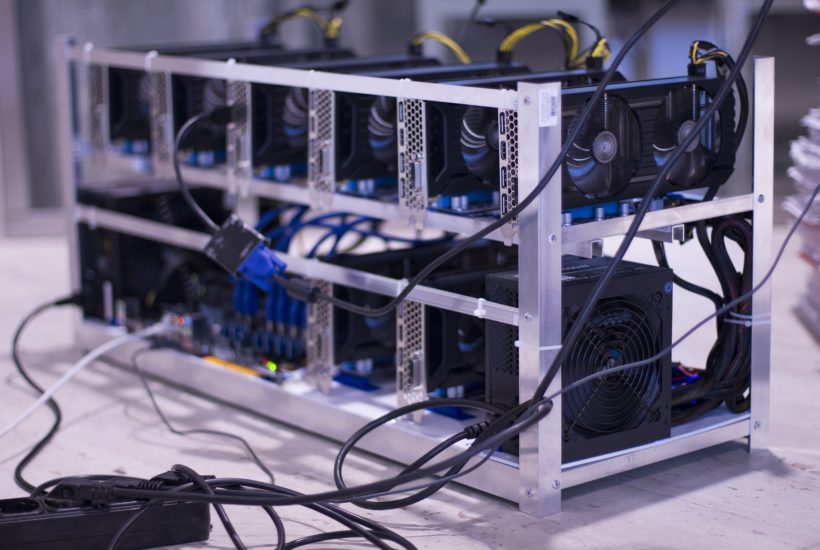Crypto
Could Ethereum’s computing power help halt the COVID-19 pandemic?
Some of the most important players in the crypto sector are trying to help halt the coronavirus pandemic. Ethereum miner “CoreWeave” is now providing 6,000 GPUs (Graphics Processing Units) to participate in a research project run by Stanford University called Folding@home. Brian Venturo, the co-founder of the project is sure that CoreWeave has at least a chance to find a drug against COVID-19.

Authorities have repeatedly emphasized that the current measures against COVID-19 are not meant to halt the pandemic, but only to slow it down. The only way to stop it is to find a suitable medicine for those who are already ill and a vaccine for those who aren’t infected yet. This makes it all the more important that medical research for such drugs and vaccines is carried out at full speed. But what does this have to do with crypto? The Ethereum network is now participating in precisely this type of medical research, with some miners providing computing power.
Download our companion app Born2Invest, to find the latest breakthroughs in biotech and to be the first to read the most important economic news and happenings on the world’s financial markets.
Ethereum Miner provide GPUs for research
Normally, in the crypto area, people are more interested in exchange rates. With the current events worldwide, on the one hand, cryptocurrency rates are becoming more interesting due to the high volatility. On the other hand, they are also less important, just thinking of the humanitarian scale of this crisis. This makes it all the more encouraging to see that some of the largest players in the crypto sector are now also contributing to overcoming the COVID-19 crisis.
As the crypto news site Coindesk reported, Ethereum miner “CoreWeave” is now providing 6,000 GPUs (Graphics Processing Units) to participate in a research project run by Stanford University called Folding@home. The goal of Folding@home is to connect as many computers as possible worldwide into a decentralized supercomputer, in order to use this computing power for medical research, including research against the new coronavirus.
The 6,000 GPUs provided by CoreWeave represent only 0.2% of the total computing power in the Ethereum network, but they are said to have doubled the computing power of the Folding@home network.
Can Ethereum’s computing power make a contribution?
The co-founder and CTO of CoreWeave, Brian Venturo, said the project has at least a chance of finding a drug against the coronavirus: “Our research has had a profound impact on the development of drugs for HIV, and we hope that our [computing power] will help in the fight against the coronavirus pandemic.”
Just as Bitcoin and Ethereum are decentralized computer networks, so does Folding@home works to distribute the computing tasks required to model complex biological processes. The computing power generated by connecting all computers in the network can be used to “solve digital problems”, similar to BTC or ETH mining.
One possible application is, for example, the simulation of proteins. Various combinations are tested digitally to gain knowledge about the virus and potential drugs. Venturo said about this: “The protein simulations try to find potential “pockets” where existing US Food and Drug Administration-approved drugs or other known compounds could help to inhibit or treat the virus.”
In the meantime, other Ethereum miners are said to have joined the Folding@home network. Unfortunately, ASIC chips, which are usually used in Bitcoin mining, cannot be used for the calculations. Therefore the support so far came mainly from the Ethereum network. It remains to be seen if Folding@home can contribute a significant part in overcoming the coronavirus crisis.
_
(Featured image by rebcenter-moscow via Pixabay)
DISCLAIMER: This article was written by a third party contributor and does not reflect the opinion of Born2Invest, its management, staff or its associates. Please review our disclaimer for more information.
This article may include forward-looking statements. These forward-looking statements generally are identified by the words “believe,” “project,” “estimate,” “become,” “plan,” “will,” and similar expressions. These forward-looking statements involve known and unknown risks as well as uncertainties, including those discussed in the following cautionary statements and elsewhere in this article and on this site. Although the Company may believe that its expectations are based on reasonable assumptions, the actual results that the Company may achieve may differ materially from any forward-looking statements, which reflect the opinions of the management of the Company only as of the date hereof. Additionally, please make sure to read these important disclosures.
First published in CRYPTO MONDAY, a third-party contributor translated and adapted the article from the original. In case of discrepancy, the original will prevail.
Although we made reasonable efforts to provide accurate translations, some parts may be incorrect. Born2Invest assumes no responsibility for errors, omissions or ambiguities in the translations provided on this website. Any person or entity relying on translated content does so at their own risk. Born2Invest is not responsible for losses caused by such reliance on the accuracy or reliability of translated information. If you wish to report an error or inaccuracy in the translation, we encourage you to contact us.

-

 Business2 weeks ago
Business2 weeks agoLegal Process for Dividing Real Estate Inheritance
-

 Fintech12 hours ago
Fintech12 hours agoJPMorgan’s Data Fees Shake Fintech: PayPal Takes a Hit
-

 Fintech1 week ago
Fintech1 week agoPUMP ICO Raises Eyebrows: Cash Grab or Meme Coin Meltdown?
-

 Africa3 days ago
Africa3 days agoSurging Expenditures Widen Morocco’s Budget Deficit Despite Revenue Growth
























